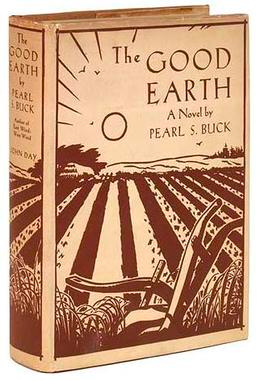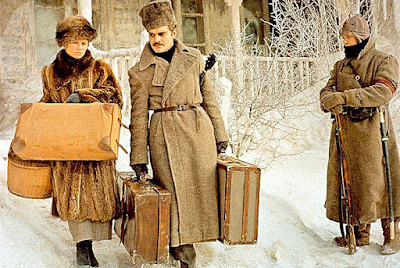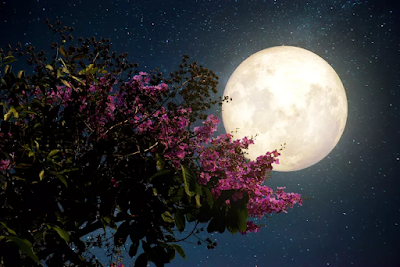Sunday, 10 December 2023
The Seven Moons of Maali Almeida by Shehan Karunatilaka – Nov 30, 2023
Wednesday, 1 November 2023
Poetry Session – Oct 26, 2023
Tuesday, 24 October 2023
The Good Earth by Pearl Buck – Sept 28, 2023
Thursday, 31 August 2023
Romantic Poetry Session — August 25, 2023
Poets for the session on Aug 25, 2023
In addition to the usual English suspects, Shelley and Keats, we had two American poets Whitman and Emerson, a French poet Victor Hugo, and a Polish poet, Adam Mickiewicz.
Within the English Romantic poets there was the younger generation consisting of Shelley, Keats, and Byron, that rebelled against the the older generation, signified by Wordsworth and Coleridge. Not only was the lifestyle of the youthful poets freer, but they were uncompromising in their support for the French Revolution, and for greater freedom of speech and belief, which they hoped would usher in a freer Britain. Byron’s contempt for Southey, Wordsworth and Coleridge (the old guard) led to the creation of a freer and even more Romantic era of poetry.
Wordsworth and Coleridge were close collaborators in writing poetry and in developing theories about poetic values and how poetry arises, culminating in the Lyrical Ballads. That joint collection of poems, first published in 1798, is generally considered to have marked the beginning of the English Romantic movement in literature. The 1800 edition had the famous Preface that set out the changes Wordsworth hoped to bring about by treating poetry not as elevated speech, but common speech enlivened “with more lively sensibility, more enthusiasm and tenderness” toward Nature. He gave his famous definition of Poetry as “the spontaneous overflow of powerful feelings: it takes its origin from emotion recollected in tranquillity.”
The younger generation knew each other’s work and generally had good opinions to share. Keats did not come from nobility as Shelley and Byron did, and did not have the benefit of University education that came as a birthright for the well-born. However he made up for it by reading everything he could get his hands on via his friend Cowden Clark.
Shelley and Byron did collaborate during their famous 1816 sojourn in Switzerland. Poems like Julian and Maddalo by Shelley about two friends: Julian the idealist who is like Shelley, and Maddalo the aristocrat who resembles Byron. That Swiss contact made by Lake Geneva where the Shelleys and Byron rented villas, had many other literary consequences. There Byron found the medieval Château de Chillon, which inspired his long poem, Prisoner of Chillon. Mary Shelley wrote her famous thriller, Frankenstein, Or, the Modern Prometheus. And Byron finished the third canto of his epic poem Childe Harold’s Pilgrimage, in the villa Diodati.
Villa Diodati in Cologny, Switzerland by Lake Geneva where the Shelleys and Byron met in 1816
The modern poet Vijay Seshadri writes about how he was inspired by the grand old poet – Whitman. Seshadri says in an interview that he is amazed by the delicacy of Whitman’s technique, the more so because he is thought of historically, as “massive and powerful.” Seshadri says Whitman “has a control over the minutiae of poetry that is of the same order as Emily Dickinson’s. You can just marvel and marvel at the little effects, and the little changes.” But the greatest challenge in Whitman is “the visionary life and the prophetic experience” he brings. Can one rise to that?
Thursday, 10 August 2023
Fathers and Children by Ivan Turgenev – July 21, 2023
Turgenev – Fathers and Sons, First Edition, 1867, English translation bay Eugene Schuyler
Fathers and Sons is a novel by Ivan Turgenev published in 1862. Its reputation in Russia and abroad remains stout as ever after it gained a following in continental Europe as the foremost Russian novel of the 19th century. It highlights the conflict between the established order and the younger, more radical generation in society. In a way it is a preview of the Bolshevik revolution to come.
Bazarov, the central character of the novel, representing the younger generation, is represented as a ‘nihilist’, or a skeptic about any political causes and philosophical –isms that are advocated in society by their champions. However, though Bazarov sets himself up as a nihilist, he has humanist tendencies; for example, he puts his medical skills in the service of the peasants he freely associates with, though he is the son a small landowner himself. So too the brothers Kirsanov with whom he has arguments have long since freed their serfs; their liberal-minded egalitarian nature is evident.
Falling in love is treated in various ways. There is the simple seigneurial manner in which Nikolai Kirsanov takes to Fenechka; the romantic manner in which Arkady ultimately falls for Katya, sister of Odintsova; and finally the more intellectual, and at the same time refined attraction that emerges between Odintsova and Bazarov. Bazarov’s first reaction is: “What a magnificent body; shouldn't I like to see it on the dissecting-table.” But when his plan to possess her physically fails, he won’t fall for chivalrous sentiments. He has to admit finally the fact that he is in love with a real but unattainable woman.
The duel scene in Chapter 24 is set up on the flimsiest of excuses, that Bazarov who stole a kiss from Fenechka, the concubine-mistress of Nikolai, has been caught in the act by Pavel, Nikolai’s brother. Some see it as the dramatic high point of the novel, but it is in fact a comic absurdity. Whether Turgenev meant it thus is debatable, but our readers derived only general merriment from the scene.
Turgenev lived in Paris in the latter part of his life with his friends, Madame Pauline Viardot and her husband. Turgenev, it seems, had a passion for painting and was a discerning critic.
Friday, 23 June 2023
Poetry Session – June 16, 2023
Collage of Readers on Zoom
We had ten poets represented, five American, three British, and one each from Russia and Argentina. The only translated poems were those of Pasternak from Russian, and Borges from Spanish.
Saturday, 3 June 2023
In the Country of Men by Hisham Matar – May 23, 2023
Friday, 12 May 2023
Romeo and Juliet, a Shakespearean Evening – April 25, 2023
Mercutio says, “Ask for me tomorrow, and you shall find me a grave man,” introducing a pun on ‘grave’ at a not very comedic moment when Mercutio has just been stabbed and knows that he is about to die.
Many expressions in the play have entered into the common discourse of English-speakers, and remain current four and a half centuries later, such as
What’s in a name?
But Shoba pointed out that P.G. Wodehouse was a constant quoter of Shakespeare, whom he called “brother-pen” in his novels. For instance, he uses Mercutio’s description of his wound:
a church door, but ’tis enough.
And the line from Talitha’s passage in which Abraham asks Sampson (servants of the rival families) about a supposed insult:
– even this finds its way into P.G. Wodehouse, who was a veritable repository of Shakespeare quotes, hundreds of which are sprinkled throughout his works. For a complete tracking down of allusions to Shakespeare in P.G. Wodehouse see:
Perhaps the most sensuous and beautifully filmed version of Romeo and Juliet is the one directed by Franco Zefirelli. The costuming was a stunning recreation of medieval Verona. The actors are as young as the play supposes, and take on their parts with a naturalness that makes everything come alive. The music too (composed by Nino Rota) was hauntingly beautiful with this signature theme song (lyrics by Eugene Walter, voice Glen Weston):
It then will fade
So does a youth
So does the fairest maid
Shakespeare being Shakespeare cannot avoid the bawdy in his plays, probably out of the need to relate to the various classes of people attending the theatre, from groundlings to nobles. Take a look at this banter among servants, who draw their sword, itself a figure of speech for the penis:
when I have fought with the men I will be cruel with the maids,
I will cut off their heads.
The heads of the maids?
take it in what sense thou wilt.
In the classic glossary compiled by Eric Partridge in 1947 titled Shakespeare’s Bawdy, we learn the full reach and extent of the use of erotic imagery prevalent throughout Shakespeare’s works; one can only have an incomplete understanding of his plays without an acquaintance with his enormous vocabulary on the animal spirits of mankind, and how they are clothed in metaphors and images of the male and female bodies.
You can read here some of the risqué double entendres that are sprinkled throughout the otherwise dewy romantic play – from Mercutio’s “the bawdy hand of the dial is now upon the prick of noon” (Act 2, Scene 4) to the Nurse’s “your love / Must climb a bird's nest soon when it is dark” (Act 2, Scene 5). In Shakespeare’s case it extends even to French – in Act 3, Scene 4 of Henry V , Princess Katherine receives a memorable language lesson almost entirely in French from Alice, her maid-in-waiting, on the English names for parts of the body, which in Katherine’s French for ‘foot’ and ‘gown’, are easy to confuse with French vulgarisms.
One reader raised the agonised question why Shakespeare had turned the wonderful account he gives of youthful passion into a dark tragic ending. As in Hamlet numerous deaths pile on toward the ending. It is not any fatal flaw of Romeo that results in tragedy, but a combination of two circumstances:
The greatest tales of love that survive in world literature are either cases of unrequited love, of separated lovers, or those that end in the death of the lovers.
The account of the actual potent love of Héloïse for her teacher Abelard a thousand years ago in France, survives in the wondrous letters he is forced to address to a woman who is now beyond his reach in a cloister.
In the Celtic legend of Tristan and Isolde the two mistakenly drink a love potion, but are nevertheless separated in life until Tristan’s death.
Laila and her obsessed lover Majnun, is a story of Arab origin made epic by the Persian poet Nizami Ganjavi. Laila dies of heartbreak from not being able to see her beloved. Majnun was later found dead in the wilderness in near Layla's grave. He had carved three verses of poetry on a rock near the grave, which are the last three verses attributed to him.

Wednesday, 5 April 2023
Life of Pi -Yann Martel - March 20,2023
2001 first edition of Life of Pi, published by Alfred A. Knopf
The Golden Rule unites religions
Piscine Molitor Paris after renovation in 2015
Calculation of approximations to the transcendental number Pi by successive generations of Indian Mathematicians
Zebra, Orang-utan, Hyena, and Bengal tiger with Pi in the lifeboat
The
prey-predator relationship goes to work to reduce their numbers and ultimately
Pi is left with the Bengal tiger (who has the unlikely name of Richard Parker,
after a shikari who hunted tigers) with only a tarpaulin to separate them. This
is the ultimate matchup to decide who will be the Alpha male.
There is also the mundane task of assuaging hunger and thirst. Perhaps the most Robinson Crusoe-like part of the story is Pi’s slow education by trial and error, with a great deal of improvisation, on how he went about getting food and drink from the ocean and the sky using various crude implements he devised. Flying fish, turtle-meat, dorados, and the all-important rain-water collection apparatus (an inverted umbrella) provide sustenance.
A gaff – A large iron hook attached to a pole or handle and used to land large
fish
The island – Pi is astonished ‘I know I will never know a joy so vast as I experienced when I entered that tree’s dappled, shimmering shade and heard the dry, crisp sound of the wind rustling its leaves’
Meerkats
We are
left with this as the only curiosity to be followed up. They are not rescued,
but wash up unceremoniously on the coast of Mexico and the end fizzles out like
a damp squib with Pi being interviewed by two Japanese on behalf of the
insurers of the vessel that was lost at sea, perhaps in an explosion.
The
film of the novel was made by the well-known director Ang Lee in a 2012
adventure-drama film, whose screenplay was written by David Magee. It stars
Suraj Sharma, Irrfan Khan, Rafe Spall, Tabu and Adil Hussain in lead roles.








.png)

















.jpeg)
%20by%20Zeffirelli.png)









%20acts%20as%20Gita%20Patel,%20mother%20of%20Pi%20Patel%20in%20the%20film.png)


.png)



